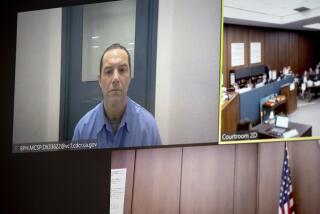DNA Analysis Doubted in Maine; Molestation Charges Are Dropped
- Share via
PORTLAND, Me. — Charges against a man accused of sexually molesting a 5-year-old girl were thrown out after the accuracy of DNA analysis, sometimes called genetic fingerprinting, was questioned.
The defense lawyer says the doubt raised about the reliability of the DNA tests should trigger a re-examination of the use of such tests in criminal prosecutions.
“This case opens up serious questions concerning dozens of convictions and pleas across the country that are based on DNA typing,” said Gene R. Libby, attorney for a South Portland man in a case involving the state’s first use of genetic coding to identify a suspect.
A Cumberland County prosecutor withdrew the DNA evidence a week ago and charges against Kenneth McLeod alleging he committed a sexual act with the girl were dropped.
In seeking to block the use of the DNA evidence, Libby raised questions about the techniques used by Lifecodes Corp. of Valhalla, N.Y., to analyze the sample. Lifecodes, one of only three DNA testing laboratories in the nation, deemed the DNA from semen that was evidence of the molestation to be a match with DNA in a blood sample taken from McLeod.
But during a pretrial hearing to decide whether to admit the results as evidence, Dr. Michael Baird of Lifecodes testified that the match was not precise because the DNA sample from the semen was “degraded” from exposure to the elements.
Karen Wexler, a spokeswoman for Lifecodes, defended the company’s procedures. “We feel the technique is very reliable,” she said.
More to Read
Sign up for Essential California
The most important California stories and recommendations in your inbox every morning.
You may occasionally receive promotional content from the Los Angeles Times.













